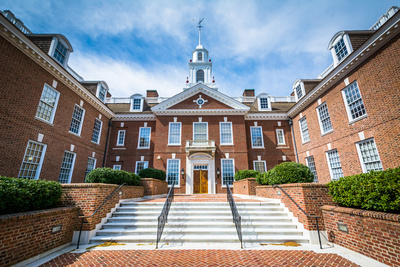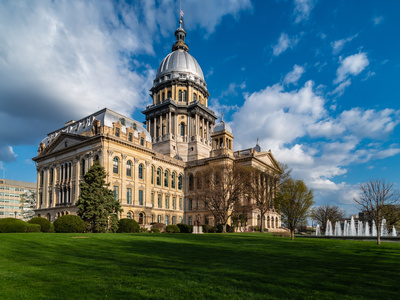-000055-400px.jpeg)
Tax & Budgets, Health Care & Wellness
Here’s How States Are Responding to Trump’s One Big Beautiful Bill Act
October 8, 2025 | Abbie Telgenhof, Morgan Scarboro
June 25, 2024 | Ryan Maness

Key Takeaways:
With states mostly wrapping up their legislative work for the year, there are a few states that are planning to meet over the summer to try to consider outstanding tax policy proposals. Nebraska lawmakers will try to find a way to meet Governor Jim Pillen’s (R) goal of cutting several billion dollars from the property tax, and Kansas lawmakers are hoping to finally get Governor Laura Kelly (D) on board with a personal income tax reduction. Connecticut lawmakers want to return to Hartford to continue their work to pass an amendment to the way that car property taxes are assessed. Connecticut lawmakers want to continue their work to pass an amendment to the way that car property taxes are assessed, and Louisiana Republicans rejected Governor Jeff Landry’s (R) call for a constitutional convention, but may be willing to consider possible reforms during a special session.
One thing to watch in these states moving forward is how long these debates drag on: if lawmakers are still gridlocked as the weeks roll by, it can put additional pressure on them to pass something and so they can adjourn. This pressure can lead lawmakers to move on proposals that are more aggressive or which haven’t been fully fleshed out.
During the regular session, Governor Jim Pillen (R) pushed to cut the property tax by nearly half, saying that it was essential to end the “crisis” that had been “hurting Nebraska farmers, ranchers, homeowners, and businesses for most of our lifetimes.” The governor seemed to acknowledge that new revenues would be necessary to offset these potential changes, but did not give legislators much public guidance about what he wanted those new revenues to look like.
In the weeks that followed, lawmakers coalesced around a proposal (NE LB 388) that would have levied a new tax on digital advertising and expanded the sales tax base to include a few new services (notably veterinary and clothes cleaning services). Following protests from citizens, the business community, and legal experts about the effect that the digital advertising tax would have, lawmakers voted down the bill in the final moments of the session.
Since the bill’s defeat, Governor Pillen has been literally barn-storming around his state making the case to cut property taxes for Nebraskans. He has remained largely agnostic in his remarks about what specific pay-fors lawmakers might use to replace the billions in lost revenue, but he has suggested he might sign off on a sales tax rate increase paired with a sales tax base expansion. At a recent stop in Beatrice, Nebraska, he suggested that lawmakers should consider eliminating a collection of the state’s 120 sales tax exemptions that he said “pick winners and losers.”
There is still no official word on when the legislature might return to Lincoln to formally consider the issue, but the governor thinks that discussions will grow more focused now that we’ve passed Memorial Day.
Coming into their 2024 work, Republican leaders said that they wanted to significantly reduce personal income tax burdens by imposing a flat rate. Their bill (KS HB 2284) sought to gain the governor’s approval by pairing a unified 5.25% rate with an acceleration of the established grocery tax phase out, but she vetoed the measure in January saying the cut was “irresponsible.” The GOP tried again, this time with bipartisan support, with a bill (KS HB 2036) to compress the personal income tax into two rates, exempt social security payments from taxation, and accelerate the grocery tax phase out. The governor rejected this proposal as well.
Throughout this process, Governor Kelly has pitched her own tax cut plan, which would increase the standard deduction, accelerate the grocery tax phase out, create a back-to-school tax holiday, double the childcare tax credit, and create a new residential property tax exemption.
In an effort to resolve this disagreement and deliver tax relief for the state, Governor Kelly announced that she will convene the legislature for a special session on June 18 in order to negotiate a compromise tax cut plan. It’s still unclear how the dynamics of this session will play out and what policy positions the various sides will stake out.
While most of this summer’s tax policy activity to watch will be in Kansas and Nebraska, there are two other states worth keeping an eye on as well.
Tax policy can be one of the most challenging areas for government affairs executives. MultiState’s team understands the issues, knows the key players, and helps you effectively navigate and engage. We offer a customized, strategic solution to help you develop and execute a proactive multistate tax legislative agenda. Learn more about our Tax Policy Practice.
-000055-400px.jpeg)
October 8, 2025 | Abbie Telgenhof, Morgan Scarboro

August 5, 2025 | Morgan Scarboro

July 30, 2025 | Bill Kramer